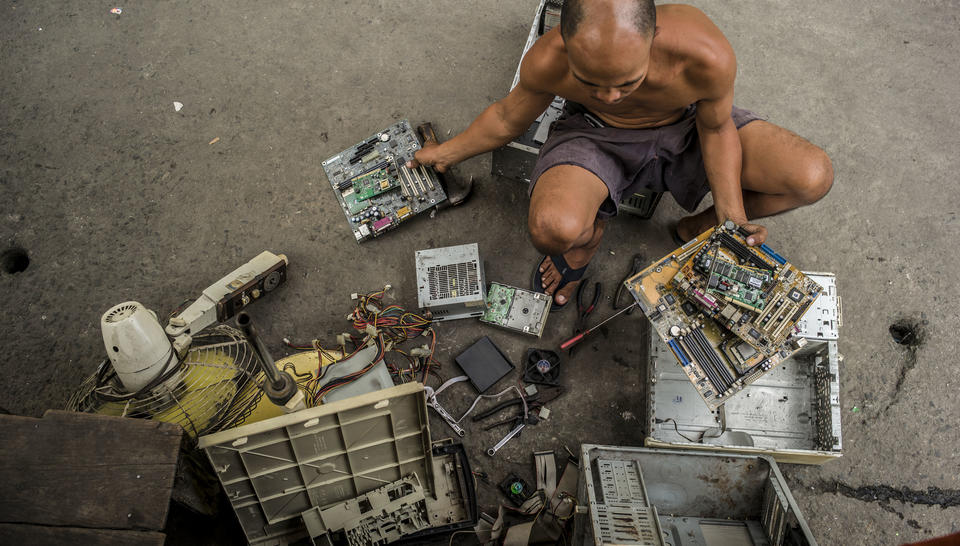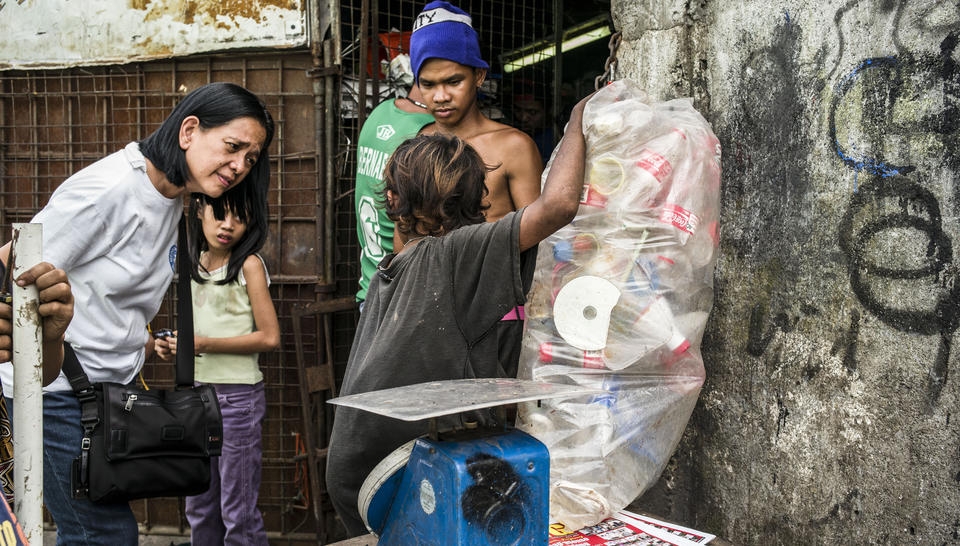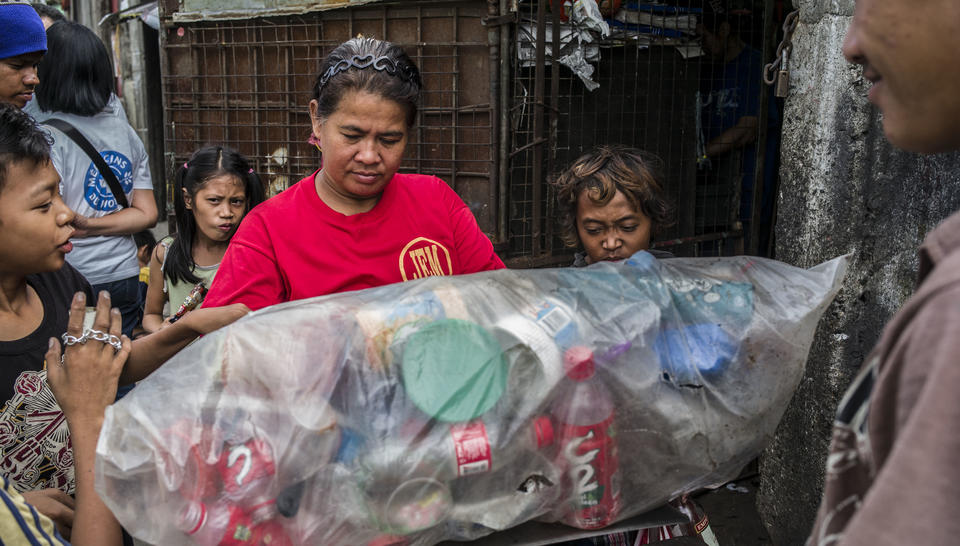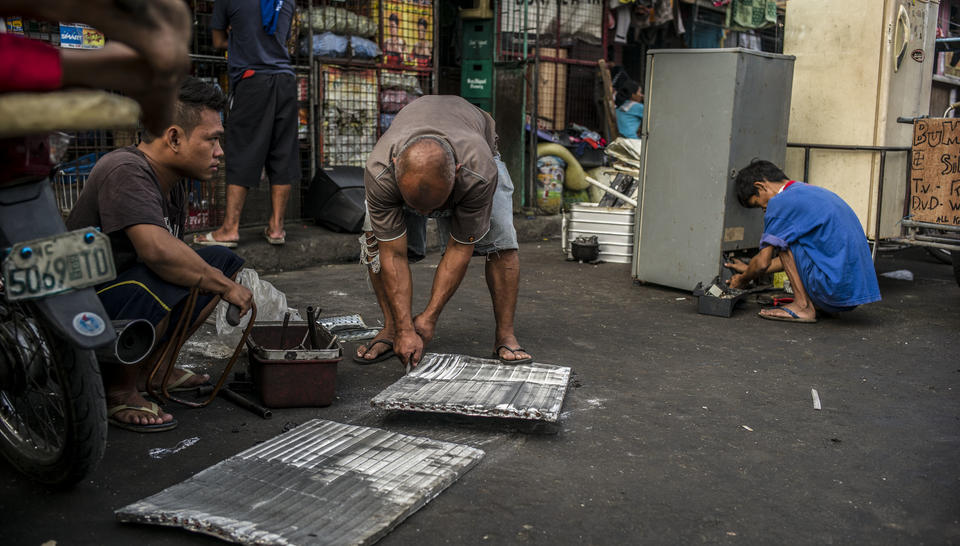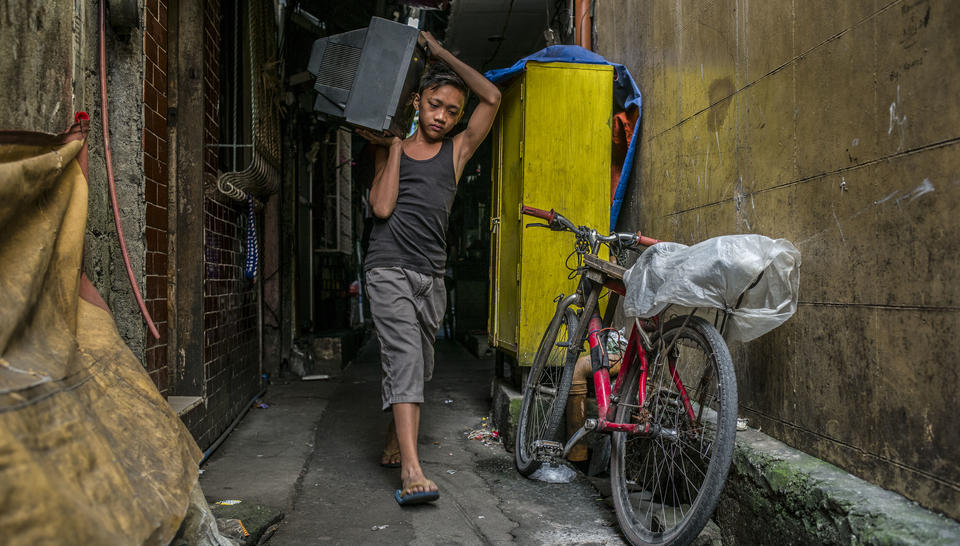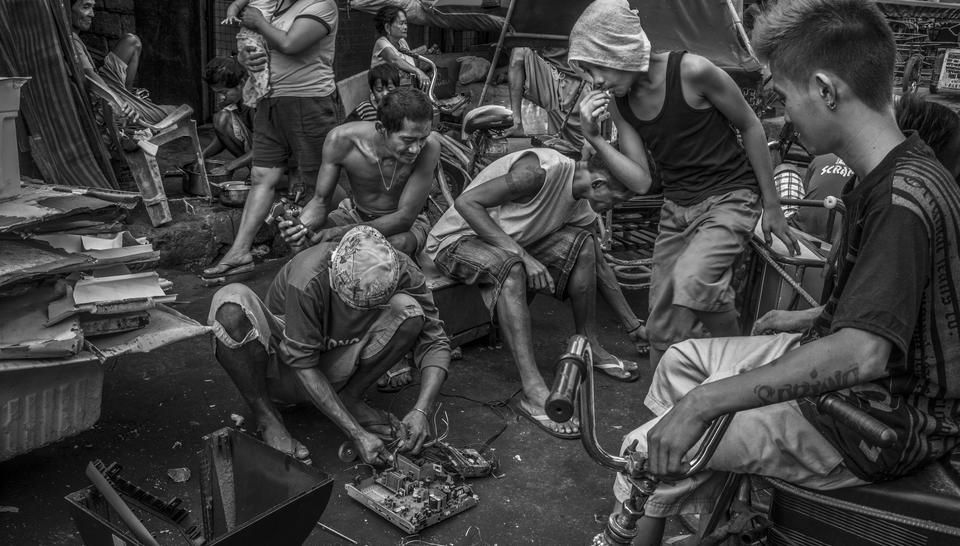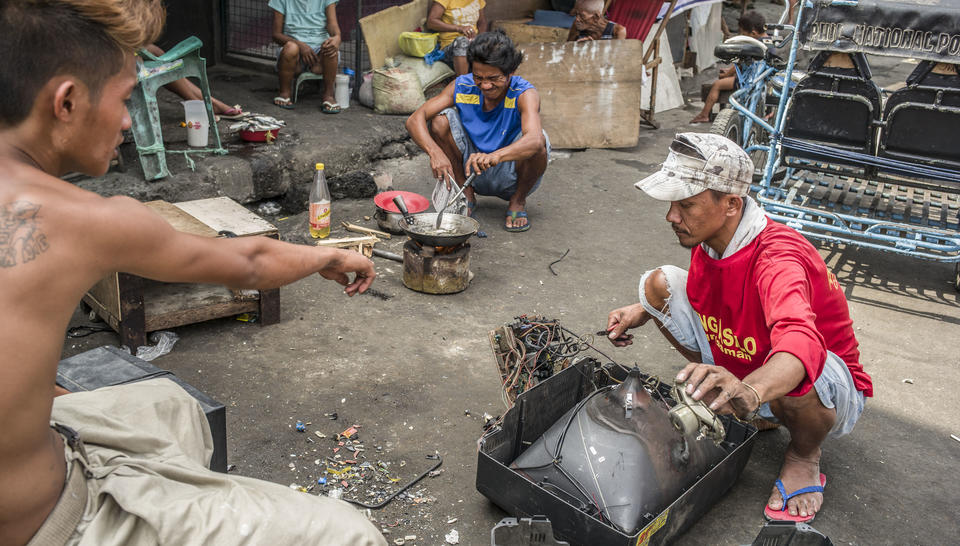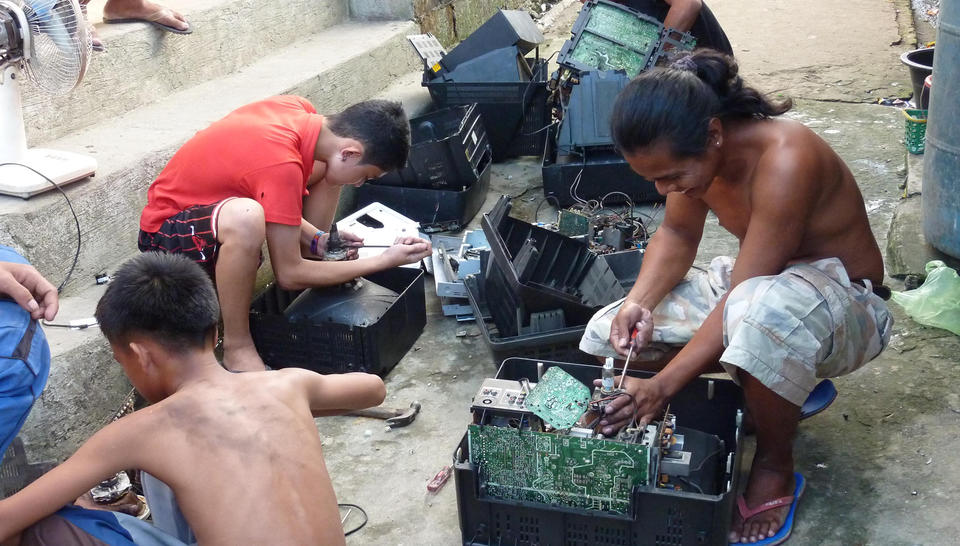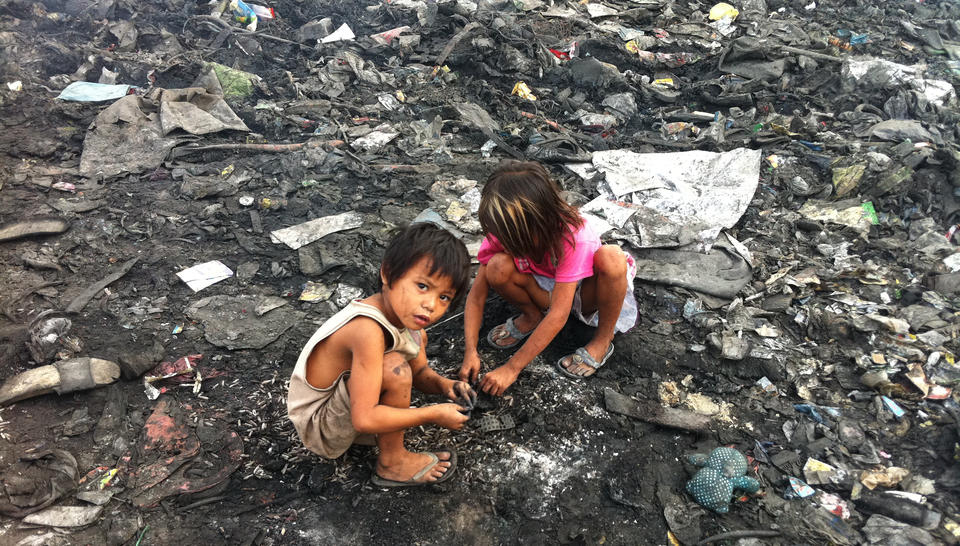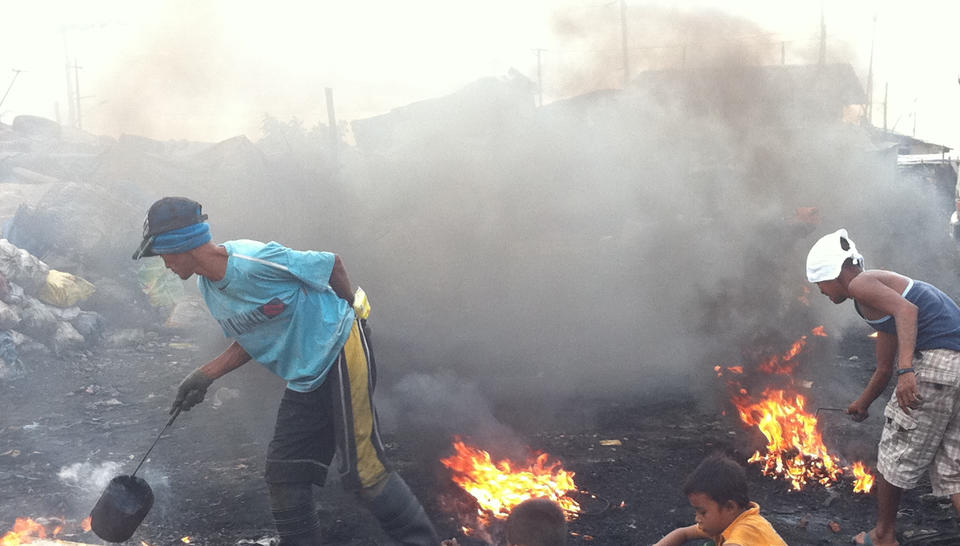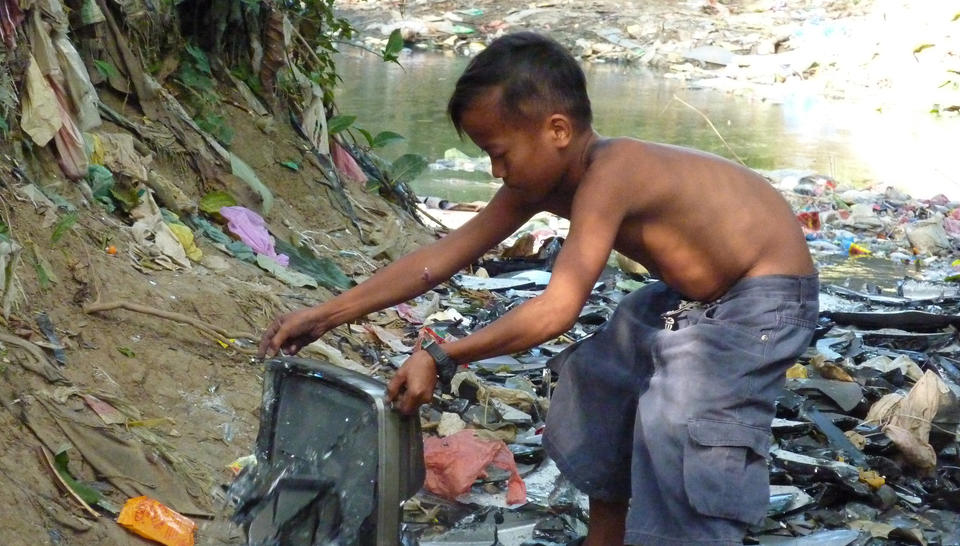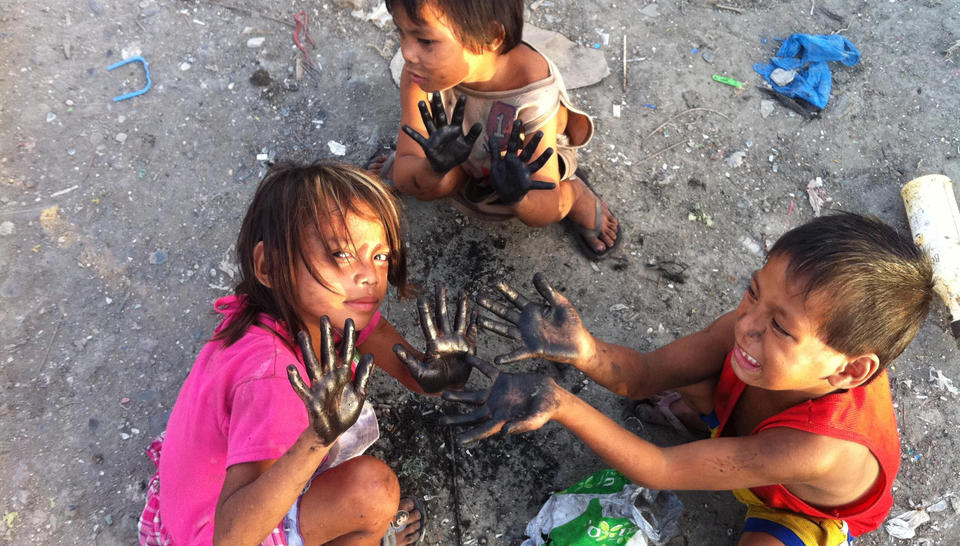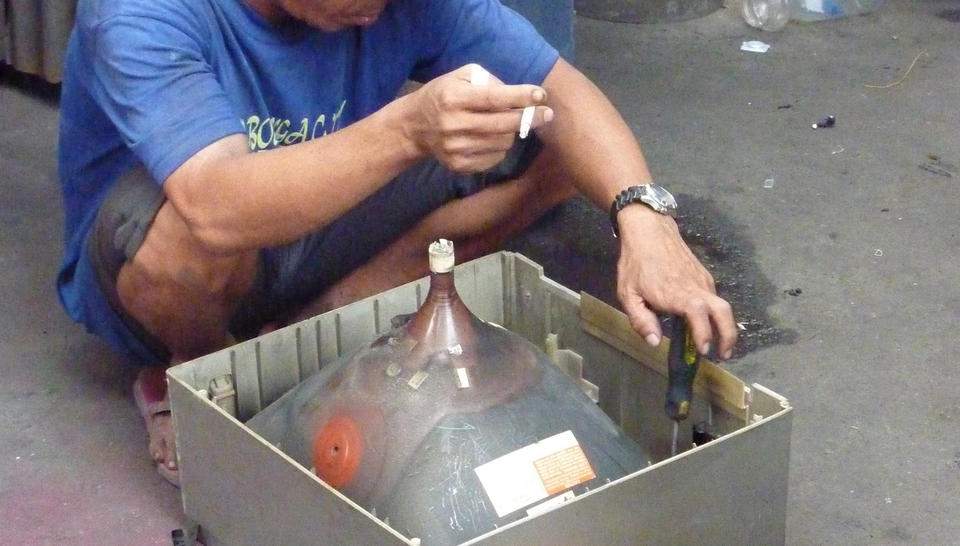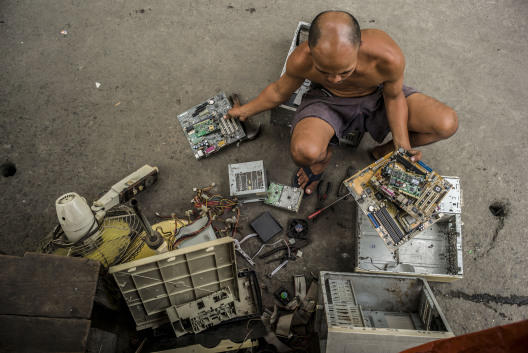
Humanitarian and Development
Place
Manila, Philippines
Sponsor
Françoise Weber
Grant(s)
€50,000 to the Selection Committee at 2012/10/09
Project leader
"This project addresses an important and often neglected issue: the recycling of toxic solid waste in the developing countries.I believe that the technical input from the Veolia group is vital here so that this innovative and meaningful project has a sufficient scale to have a real impact."
Françoise Weber
Médecins du Monde was created in 1980 by a group of activist doctors to rescue Vietnamese refugees in the China Sea.The nonprofit has grown by acting during the major crises of the 1980s in Afghanistan, El Salvador and Armenia.But also in France, where it is opening a health care center and a first voluntary, anonymous and free HIV detection center in Paris.In the 1990s, it was busy during the conflicts in former Yugoslavia, Somalia, Rwanda, Burundi, Zaire/Congo, Iran, Kosovo, Turkey, Timor and Chechnya.In the late 1990s, more than 70 missions were accomplished across the world, in over 50 countries.In the 2000s, humanitarian action has become increasingly difficult in the field, but Médecins du Monde maintains its presence among the most vulnerable, everywhere.
Its action is based on the commitment of unpaid volunteers, logisticians, doctors, nurses, midwives.It goes far beyond simple healthcare, denouncing assaults on dignity and human rights, and fights to improve the situation of the population in emergency situations and through development programs beyond the crises, participating in a country's reconstruction efforts.On the spot, the training of medical teams and the links with local partners guarantee the permanence of its actions.In 2011, Médecins du Monde completed 65 programs in 44 countries, affecting 1.5 million beneficiaries internationally.In France, 65 programs have been carried out in 30 cities and towns (40 627 medical consultations, 4 112 dental consultations, 19 500 social consultations).
Protecting the health of the recyclers
The project led by Médecins du Monde aims to improve the working conditions and the health of the workers in the informal solid waste recycling sector (especially electronic and toxic waste) of the metropolitan area of Manila.After a study phase on the health and environmental hazards of this activity, Médecins du Monde is setting up, with the backing of the Veolia Foundation through the release of Veoliaforce volunteers, mobile units for training workers in the risks incurred, supplying protective and informative materials on healthy behavior patterns.
Helping the authorities manage toxic waste more efficiently
At the same time, the NGO identifies the community leaders and stakeholders concerned to initiate a specific partnership with the governmental (health ministry, municipalities) and nongovernmental bodies on the management of these eminently toxic wastes.The goal is to reinforce the skills of the authorities and to counsel the communities (specific task forces in each municipality, workshops with the stakeholders, potential strategies taking account of community initiatives, cooperatives, micro-finance, savings).
Making the care last
The program also focuses on training the local health partners in accordance with the needs identified by a precise survey on the health of the workers and the environmental health issues.
The project is mostly financed directly by Médecins du Monde, which enjoys the support of the Veolia Foundation in connection with the project startup phase, and particularly the first field missions, and for setting up the volunteering of skills on waste management.


